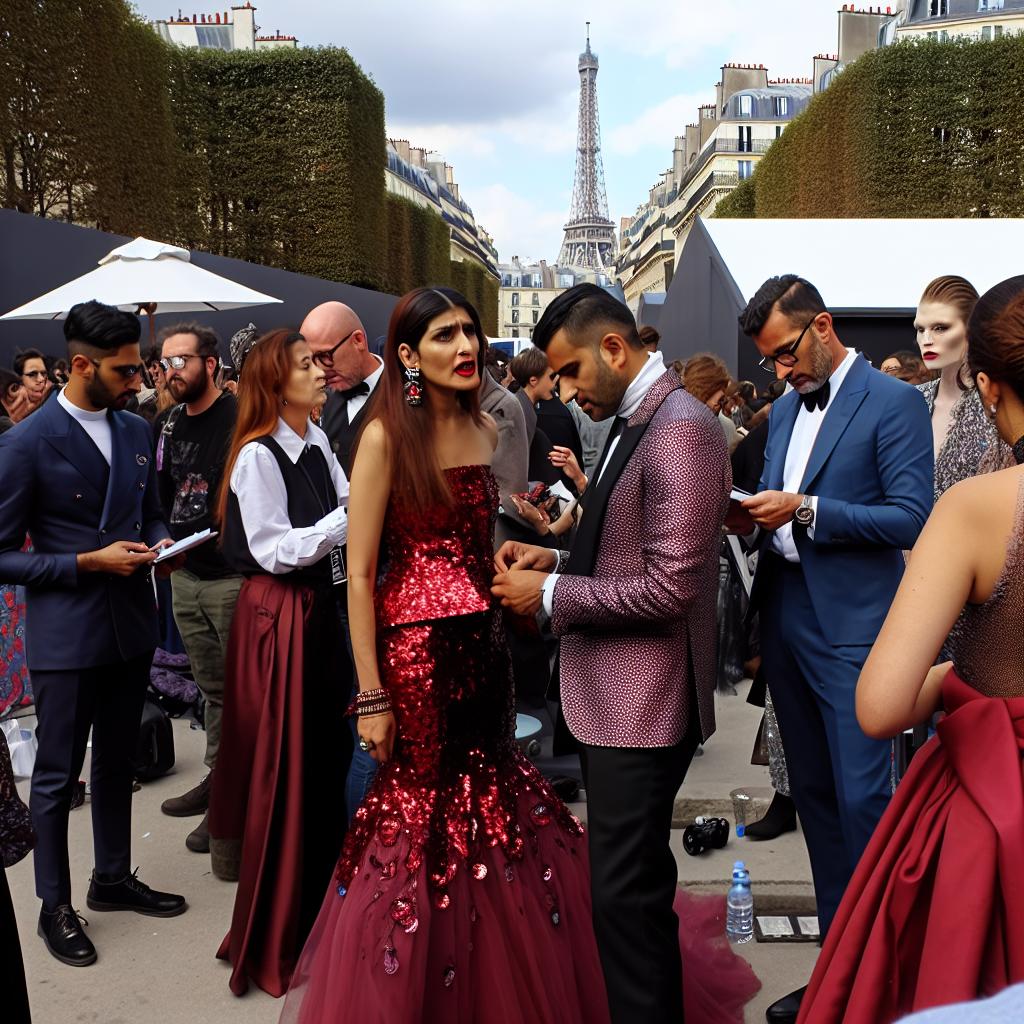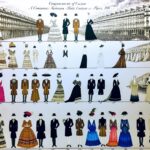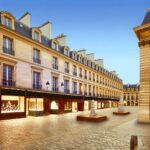The Spectacle of Paris Fashion Week
Paris Fashion Week is a significant event in the fashion industry, bringing together designers, models, fashion enthusiasts, and media from around the globe. It occurs twice a year, presenting collections for the upcoming fall/winter and spring/summer seasons.
Historical Context
Paris has long been renowned as a hub of fashion, with its history dating back to the 17th century. The city’s dominance in fashion was consolidated by the establishment of haute couture in the late 19th century. Paris Fashion Week, as we know it today, began in 1973 under the auspices of the French Fashion Federation. This organizational framework has allowed the event to grow into an influential platform that not only showcases global trends but also dictates the course of the fashion industry on an international scale.
The Format
Typically, Paris Fashion Week extends over nine days. Each day features several shows from leading luxury brands, showcasing prêt-à-porter, haute couture, men’s wear, and the newer addition, sustainable fashion. The schedule is organized meticulously, beginning with lesser-known designers and culminating with industry giants such as Louis Vuitton and Chanel. This structure not only highlights the diverse range of talent but also offers emerging designers a chance to gain valuable exposure alongside established fashion houses.
Technological Integration
With advancements in technology, many shows are now accessible via live streams, enabling a global audience to engage with the events. This inclusion of technology has significantly broadened the reach and impact of Paris Fashion Week. Furthermore, social media platforms play a crucial role in the dissemination of trends, as influencers and attendees share their experiences and insights in real-time, further enhancing the event’s global appeal and accessibility.
Economic Impact
Paris Fashion Week greatly contributes to the local economy. Besides attracting tourists, it boosts business for local artisans and vendors. The event generates revenue not only from direct fashion-related activities but also from the hospitality, transport, and leisure sectors. As hotels, restaurants, and shops see a surge in patronage, the economic benefits extend beyond the fashion industry, invigorating various sectors of the city’s economy. Moreover, collaborations between international brands and local craftsmen often lead to long-term economic ties and opportunities, underscoring the event’s importance beyond its immediate economic impact.
Fashion Trends and Cultural Influence
The collections showcased often go beyond clothing to influence design in areas such as interior decoration, automobile aesthetics, and even architecture. New trends introduced during the week are swiftly adopted worldwide, affecting both mainstream and high-street fashion. Designers often draw from a wide array of cultural motifs and historical references, leading to a fusion of styles that resonate across different industries. This cross-pollination of ideas makes fashion week a cultural event of global significance, where ideas from art, history, and technology converge to create new aesthetics and narratives.
Environmental Considerations
In recent years, there has been increased focus on sustainability. Many designers highlight eco-friendly materials and production methods, reflecting a growing movement towards responsible fashion. These practices often include the use of organic fabrics, reduced water consumption, and ethical labor practices. The fashion industry, known for its environmental impact, is witnessing a shift as designers emphasize transparency in their supply chains and pursue initiatives aimed at reducing carbon footprints. Victoria’s Secret, for instance, has incorporated sustainable fabrics into its collections, fostering a balance between luxury and eco-consciousness, as seen in further detail on their official site.
Attending Paris Fashion Week
While the event remains predominantly industry-focused, with access primarily granted to buyers, journalists, and influencers, opportunities for public engagement have increased over the years. Interested individuals can now access various shows via public viewing events or special ticketing services. Such initiatives democratize the experience, allowing broader audiences to participate in fashion week activities and understand the industry’s inner workings. Workshops, exhibitions, and pop-up events held during this period also provide unique insights into the creative processes behind some of the world’s most iconic fashion houses.
Paris Fashion Week continues to be a flagship event, influencing not only the apparel sector but also broader cultural and lifestyle trends. Its integration of tradition and innovation makes it an enduring icon in the world of fashion. By constantly evolving and embracing both technological advancements and social movements, the event remains at the forefront of the industry, continuously shaping and reshaping the global fashion landscape.
The Global Resonance of Paris Fashion Week
Aside from its economic and cultural contributions to Paris, the fashion week serves as a global barometer for style and innovation. It becomes a testing ground for designers to experiment and push boundaries, leading to a ripple effect that influences fashion capitals worldwide, including Milan, London, and New York. These cities often look to Paris for pioneering trends, and this dynamic interchange ensures that the fashion world remains interconnected, vibrant, and competitive, driving the constant evolution of design and aesthetics.
Collaborations and Innovation
Collaboration has become a key theme, where designers partner with artists, technologists, and environmental experts to create collections that are not only visually stunning but also forward-thinking. Innovations in textile technology, for example, are frequently unveiled during these weeks, reflecting ongoing research and development in the sector. The fusion of fashion with technology is evident in the use of smart textiles, augmented reality for virtual fittings, and 3D printing to create intricate designs, all of which were highlighted during recent fashion weeks.
Social Responsibility and Diversity
The evolution of Paris Fashion Week also mirrors broader societal changes, with increasing emphasis on diversity and inclusion. Runways now feature a wider array of models representing various ethnicities, sizes, and backgrounds, reflecting a more inclusive definition of beauty. This representation not only enriches the cultural tapestry of the fashion world but also continues to challenge outdated norms and stereotypes, promoting a more equitable and representative fashion industry.
Looking Ahead
The future of Paris Fashion Week looks promising as it continues to adapt and thrive amidst ever-changing societal dynamics. Whether through the enhancement of digital experiences, increased focus on sustainability, or the embracement of diverse narratives, the week is poised to remain a cornerstone of global fashion. Its ability to straddle the delicate balance between maintaining its rich heritage and embracing innovation ensures its continued relevance and impact.
As Paris Fashion Week concludes each season, the world watches not only for the unveiling of the next big fashion trends but also for its reflection on the state of global culture — a testament to its enduring legacy and influence in shaping the future of fashion.









